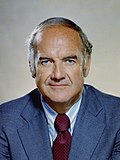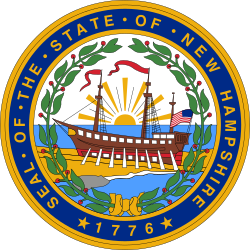March 7, 1972 | |||||||||||||||||||||
| |||||||||||||||||||||
 County results Muskie: 40-50% 50-60% McGovern: 40-50% | |||||||||||||||||||||
The 1972 New Hampshire Democratic presidential primary was held on March 7, 1972, in New Hampshire as one of the Democratic Party's statewide nomination contests ahead of the 1972 United States presidential election.



